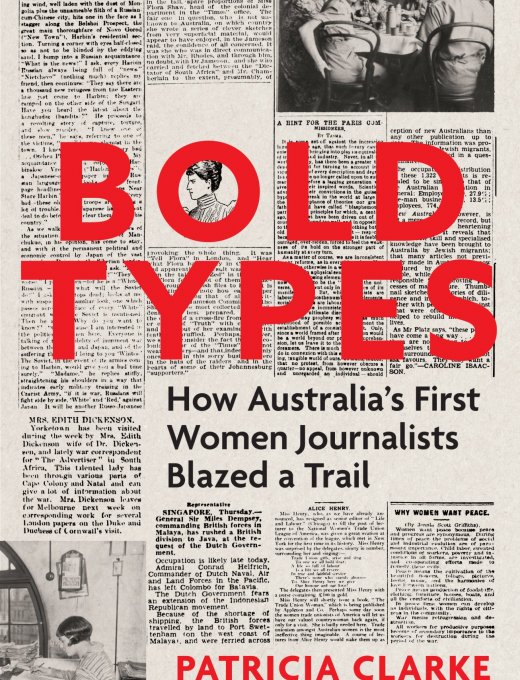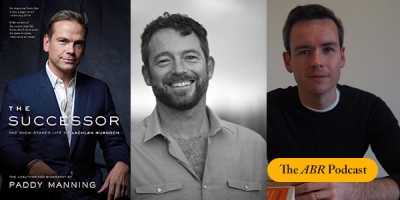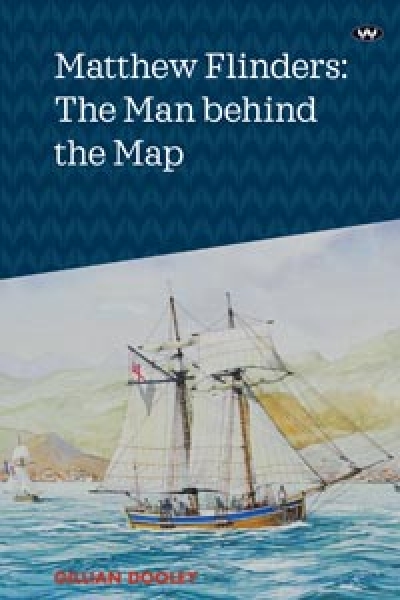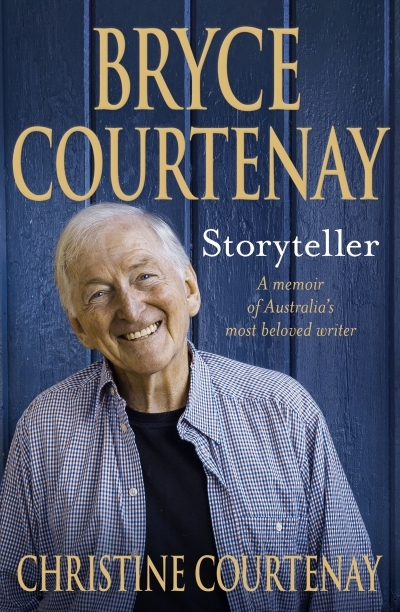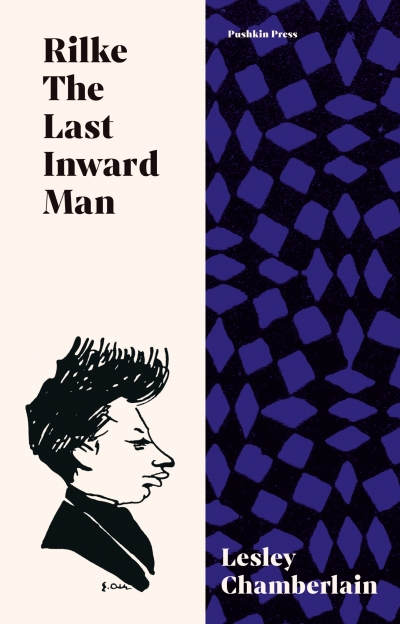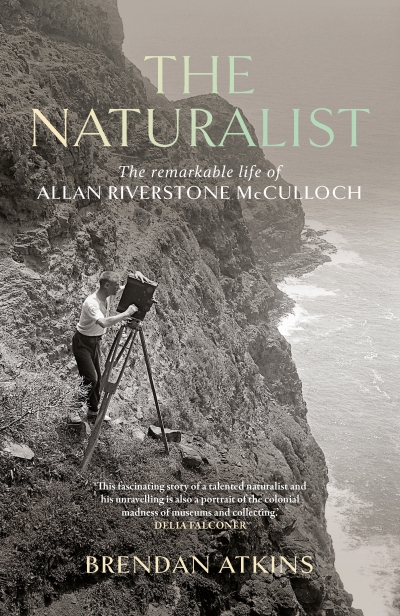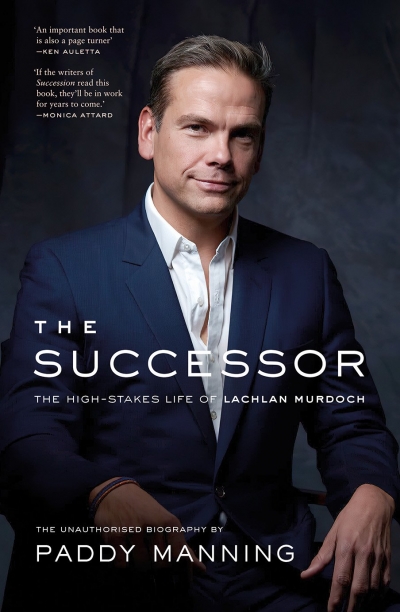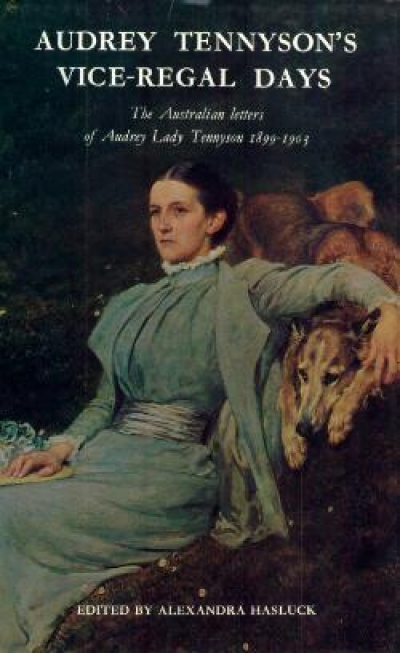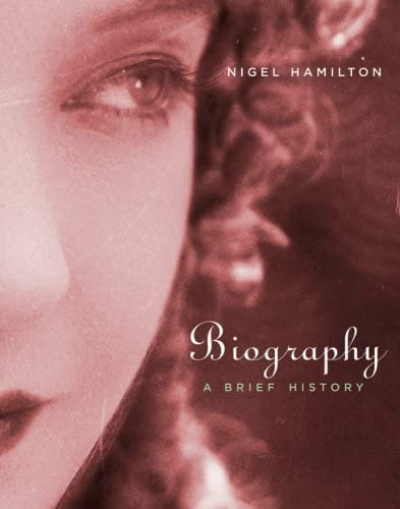Biography
Bold Types: How Australia's first women journalists blazed a trail by Patricia Clarke
After she left journalism, Patricia Clarke turned to researching and writing books, beginning with The Governesses in 1985. Bold Types is her fourteenth book. The Canberra writer was a familiar figure at media history and other conferences, and in the National Library of Australia reading rooms, until Covid-19 at least. Her books, augmented by dozens of articles and conference papers, focus mainly on the lives, careers and letters of Australian women, especially writers and journalists. Clarke also writes about the history of her city, Canberra, an interest reflected in some of the fourteen entries she has produced for the Australian Dictionary of Biography. The ninety-six-year-old has devoted nearly ‘half a lifetime’ (to borrow the title of one of her tomes, about Judith Wright) to historical endeavours.
... (read more)Lachlan Murdoch will almost certainly be the next head of News Corp, one of the world’s largest media companies and the dominant force in Australia’s media landscape. In this week’s ABR Podcast, Patrick Mullins, visiting fellow at the ANU’s National Centre of Biography, reviews a new biography of Lachlan Murdoch by Paddy Manning, titled The Successor: The high-stakes life of Lachlan Murdoch. Listen to Mullins read ‘Dual Focus’, which appears in the December issue of ABR.
... (read more)Matthew Flinders: The man behind the map by Gillian Dooley
Few names are so ubiquitous in Australian culture or hold such a significant position in its history as that of Matthew Flinders. More than one hundred sites across Australia have been named in his honour, commemorating his accomplishments as a navigator, hydrographer, cartographer, and scientist. Among them are several statues featuring Flinders with Trim, his ever-faithful pet cat and companion, as well as numerous geographic landmarks, electoral districts, and a university.
... (read more)In the introduction to her book about Bryce Courtenay (1933–2012), Christine Courtenay writes: ‘To be Bryce’s wife was both a joy and a privilege, and I remain proud of the contribution I made to our years together. Not long after we became a couple, he said, “I love you very deeply and we make a fantastic team, but you do realise you have taken on a full-time job looking after me? Plus, for seven months a year you’re a writer’s widow while you wait for me to finish each book.”’ It is a paragraph that reveals something about their relationship, including its power balance.
... (read more)Since his death in 1926, almost a century ago, the poet Rainer Maria Rilke has remained an anomaly. He was doomed, Lesley Chamberlain says in Rilke: The last inward man, to be a poet ‘in between’: a bridge between modernism and Romanticism, his work an inevitably compromised attempt to reclaim the consolations of metaphysics for a secular age. Despite this – or perhaps because of it – Rilke’s poetry has remained enduringly popular. There are dozens of translations of his notoriously complex poetry into English, and a plethora of critical writing, some of it leaning into a sentimentalised hagiography that is too easily parodied. In Reading Rilke: Reflections on the problems of translation (1999), William H. Gass perhaps best catches the ambivalence one feels approaching the man and his work:
... (read more)The Naturalist: The remarkable life of Allan Riverstone McCulloch by Brendan Atkins
The Australian Museum is starting to develop something of a literary landscape of its own. This is not so much through official publications such as Ronald Strahan’s Rare and Curious Specimens (1979) or the flagship magazine in its various incarnations from Australian Natural History to Explore. Rather, it is through more creative or expansive stories of the weird, wonderful, and personable, from Tim Flannery’s amusingly fictionalised historical recounting of The Mystery of the Venus Island Fetish (2014) to James Bradley’s disturbing future fiction The Deep Field (1999). Museum spaces – front and back of house – have an intriguing capacity to inspire and document their own strange and evolving histories.
... (read more)The Successor: The high-stakes life of Lachlan Murdoch by Paddy Manning
In the 1990s, seeing a ‘hot-red weapon’ of a motorbike being ridden into the News Corp car park in Sydney, journalist Paddy Manning could not help but ask, ‘What’s that?’ Still wearing his helmet, the rider answered that the bike was an MV Agusta – at which point Manning realised he had yelled at Lachlan Murdoch.
... (read more)Audrey Tennyson's Vice-Regal Days edited by Alexandra Hasluck
Audrey Tennyson, in a letter to her mother in January 1903, wrote: ‘About my letters … would you ask somebody to buy at Harrods a japanned tin box for holding them … the great thing is to keep them together as if they are in several places they are likely to get put away and forgotten. I am afraid they won’t be worth publishing but they may be of great interest to the boys some day – and Hallam might perhaps make use of them for a book on Australia.
... (read more)Beginning with a lament on the lack of serious academic attention that has been paid to biography, despite its enormous popularity and importance, Nigel Hamilton seeks to make good part of this deficit by providing an overview of its history and development. The account he offers is engaging and remarkable in its breadth and scope. It is customary for more literary histories of biography to begin in the classical world with Plutarch or Suetonius, and to end with the ‘new biography’ of the 1920s and 1930s. Hamilton, by contrast, begins with the first depiction of a real human drama in a prehistoric cave painting, and ends with a discussion of the death of Dolly, the cloned sheep. This latter issue is not merely frivolous on his part, but leads to a discussion of the ways in which biography might be written in a new technological world in which individuality, as currently understood, ceases to exist as life becomes technologically created, standardised, and processed.
... (read more)Once neglected within the academy and relegated to the dustier recesses of public bookstores, biography has made a notable return over recent years, emerging, somewhat surprisingly, as a new cultural phenomenon, and a new academic adventure. In a move that’s perhaps indicative of this revival, the British bookseller Waterstones recently placed their biography section at the very front of their stores, renaming it boldly, LIFE. Biography has similarly taken prime position in our nightly television, with programmes such as Dynasties, Australian Story, Talking Heads and Enough Rope. It has bagged the front stalls in our cinemas, where the lives of Casanova and Kinsey, of Truman Capote and Elizabeth I, of Johnny Cash and Alexander the Great are played out on the big screen. In our public libraries, readers huddle over computer terminals, busily researching their family genealogies. The National Library of Australia is now constructing its new coordinated online resource for biographical researchers, the People’s Portal, and has recently launched its latest publishing venture, a series of titles devoted to (what else?) Australian Biography.
... (read more)

